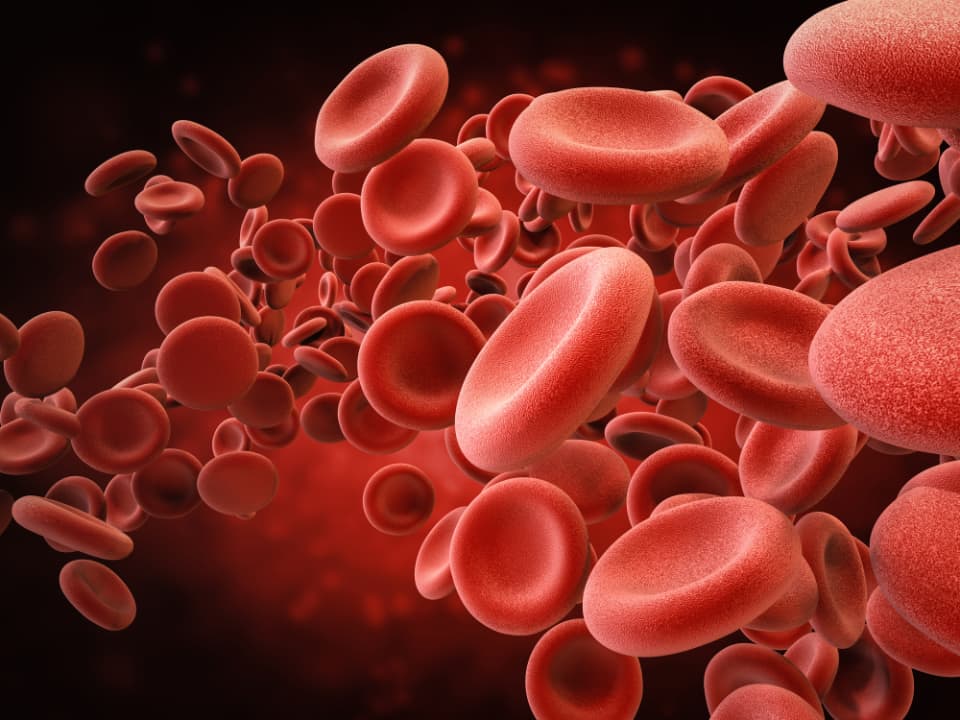New blood platelet score unveils hidden cardiovascular risk
A novel genetic scoring system developed by researchers at NYU Grossman School of Medicine could revolutionise the detection of platelet hyperreactivity, offering a more precise method to identify patients at risk of heart attacks and strokes.
Platelets, the tiny cell fragments crucial for blood clotting, have long been known to play a significant role in cardiovascular events when they become hyperreactive. However, measuring this hyperreactivity has been a challenge due to the variability of current testing methods. Now, a groundbreaking study published in Nature Communications [1] introduces the Platelet Reactivity ExpresSion Score (PRESS), a genetic signature-based tool that promises to overcome these limitations and provide a reliable measure of platelet hyperreactivity.
The genesis of PRESS
The development of PRESS marks a significant shift from traditional platelet aggregometry methods. Researchers, led by Dr Jeffrey Berger, director of the Center for the Prevention of Cardiovascular Disease at NYU Grossman School of Medicine, focused on a more nuanced approach to assess platelet function.
“Our results demonstrate that our new platelet-centric scoring system can, for the first time and across populations, circumvent aggregometry to reliably predict platelet hyperreactivity and the related risk of cardiovascular events,” said Dr Berger.
The team initially employed a refined aggregometry method using a low dose of epinephrine (0.4 μM) to identify hyperreactive platelets. This approach allowed them to establish a threshold for hyperreactivity, defined as 60 percent aggregation at this epinephrine concentration.
Building on this foundation, the researchers analysed the genetic material from platelets of 129 patients in the Platelet Activity and Cardiovascular Events in PAD (PACE-PAD) clinical study. They identified 451 genes with significantly different activity in individuals with hyperreactive platelets. Using bioinformatics, they weighted these genetic differences to create the PRESS score.
Clinical implications
The potential clinical applications of PRESS are far-reaching. Dr Berger explained: “PRESS promises to help physicians confine anti-platelet treatment to the people most likely to benefit: those with platelet hyperreactivity.”
This precision is crucial, as current practices often rely on indirect risk factors like high cholesterol or blood pressure to guide anti-platelet therapy decisions. The new score could allow for more targeted use of medications like aspirin, balancing the protective effects against abnormal clotting with the increased risk of bleeding.
Validation across diverse patient groups
To validate PRESS, the research team explored its relationship with cardiovascular risk in several patient cohorts:
Predictive power in high-risk patients
In the PACE-PAD study, involving patients undergoing lower extremity revascularisation (LER), those with hyperreactive platelets (as determined by the refined aggregometry method) had more than double the incidence of adverse cardiovascular events within 30 days post-procedure compared to those without hyperreactivity.
Correlation with acute cardiac events
When applied to the Heart Attack Research Program, which included women undergoing coronary angiography, PRESS scores were notably higher in patients who had experienced a heart attack compared to those with stable coronary artery disease.
Long-term risk assessment
In a group of patients with lower extremity atherosclerosis followed for an average of 18 months, individuals with PRESS scores above the median were 90% more likely to experience a major cardiovascular event than those below it.
Personalising cardiovascular risk prevention
Dr Tessa Barrett, assistant professor in the departments of Medicine and Pathology at NYU Langone and study author, highlighted the potential of PRESS to transform preventive cardiology: “In current practice, anti-platelet therapy is not routinely recommended for the prevention of a first heart attack or stroke, but a platelet-based test would help to identify patients at highest risk, and those who would benefit most from anti-platelet therapy to prevent a cardiovascular event,” she said.
While the study presents compelling evidence for the utility of PRESS, further research will be necessary to fully integrate this tool into clinical practice. The researchers envision a future where PRESS could be easily performed in physicians’ offices, providing a standardised measure of platelet-related cardiovascular risk across diverse populations.
Reference:
- Berger, J. S., Barrett, T. J., Cornwell, M., et. al. (2024). A Platelet Reactivity ExpreSsion Score Predicts Cardiovascular Risk. Nature Communications, 15(1). https://doi.org/10.1038/s41467-024-50994-7


